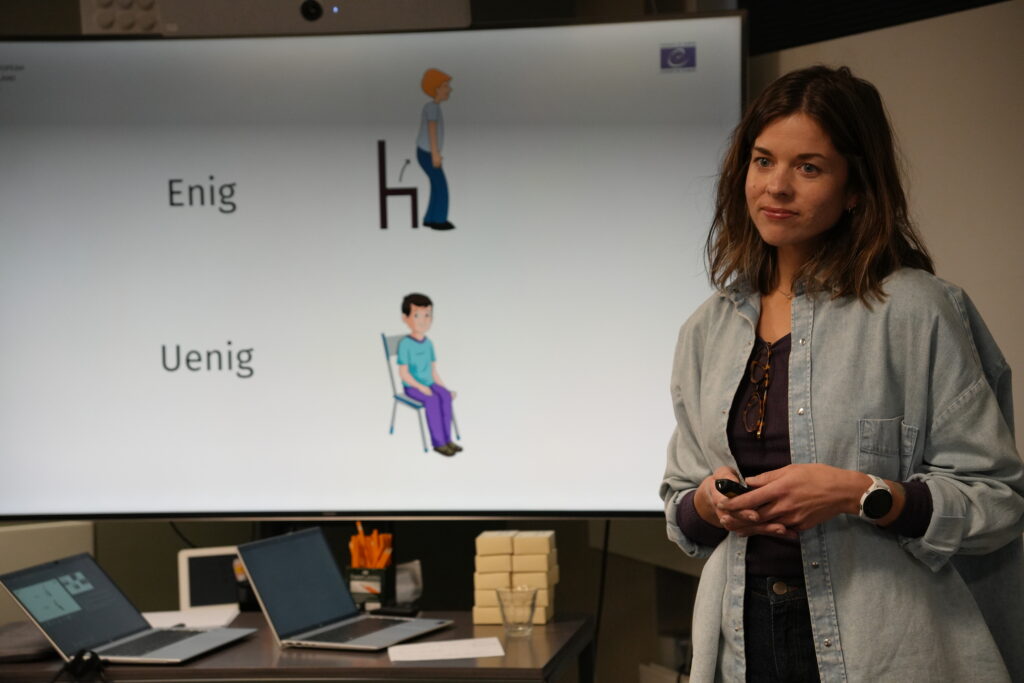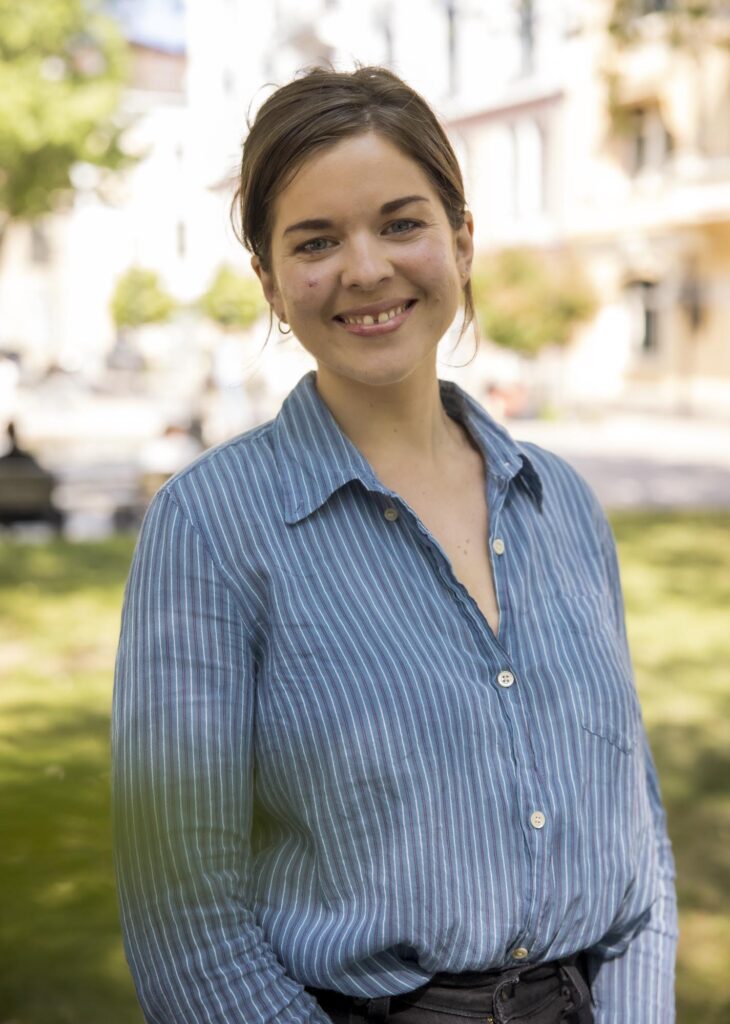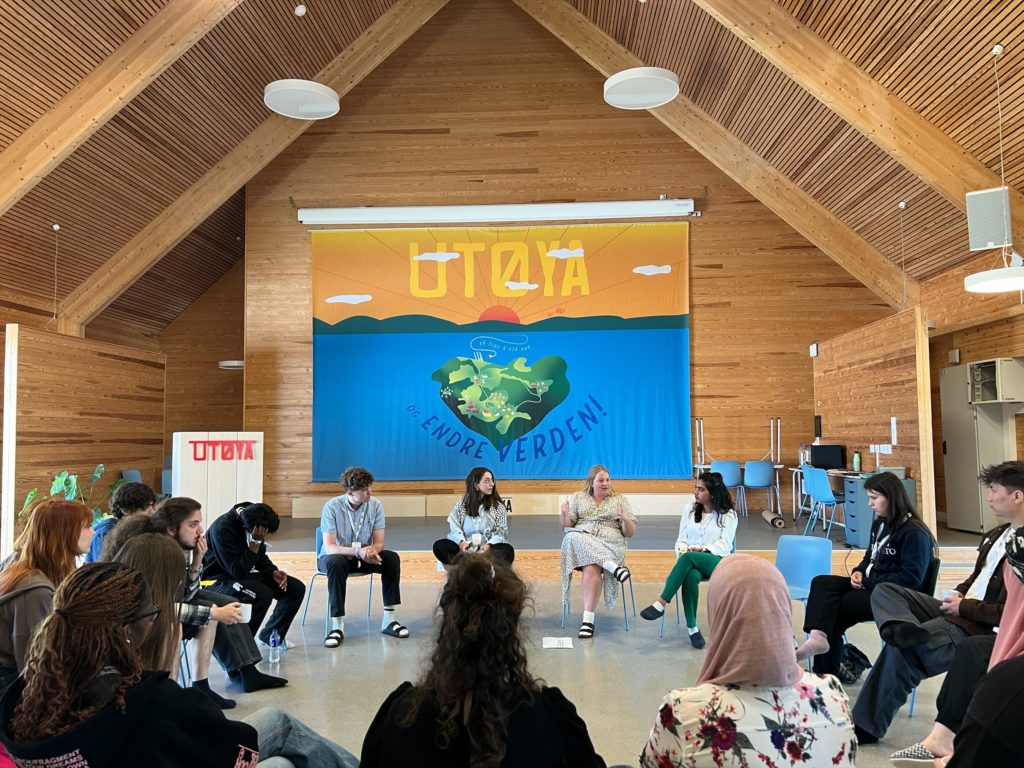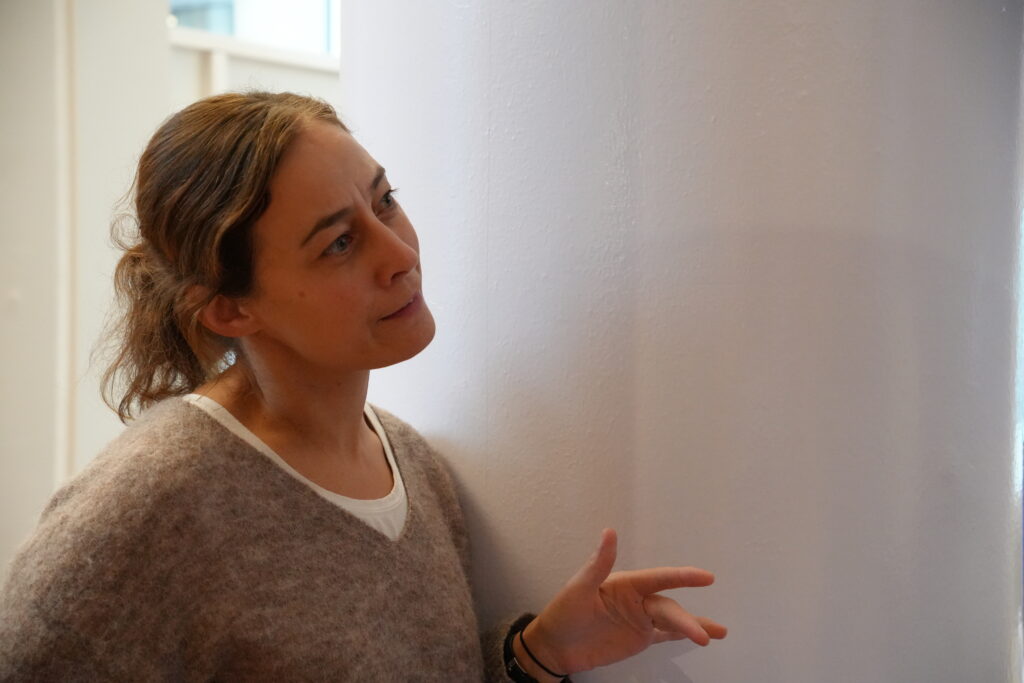Democracy does not rest solely on laws and elections, but on skills that must be learned. When teachers shy away from difficult topics in the classroom, the debate moves to echo chambers where extreme divides dominate. This is how democracy erodes. Not with noise, but with silence.

This is an opinion piece by Acting Head of the Wergeland Centre’s Youth Section, Kristin Flacké, originally published in Norwegian on ABC Nyheter
As we mark National Emergency Preparedness Week in Norway, we need to also recall that the very foundation of societal preparedness are our schools. Not only in times of crisis, but every day.
During Arendalsuka [a national, political festival in Norway], I sat on the quay and watched democracy act itself out in the bay: politicians, journalists, organisations. In the middle of a live news broadcast, the broadcast was suddenly interrupted by activists in rubber floaties demanding an end to oil extraction. A young politician asked one of them:
‘Who are you voting for?’
‘Vote? I don’t vote. The election means nothing to me.’
He was someone who exercised his freedom of speech but had no faith in the system that gave him that freedom. That is a warning sign.
And he is not alone.
The ICCS 2022 survey shows that Norwegian 14-year-olds know significantly less about democracy than they did just six years ago. Thankfully, it also shows that trust in democratic institutions remains high in Norway, while in other countries it is declining.
Democracy is still strong in Norway. But trust without understanding rarely lasts long. In a world where more and more democracies are sliding into autocracy, we must equip young people with knowledge, judgement and resilience.

Voting and polarisation
Polarisation and disinformation are highlighted as some of the greatest threats to stable societies. These are not distant problems. We see it in the media, in comment sections, in schoolyards and in classrooms. The most polarised statements are the ones to attract the most attention.
This is not only a problem for public debate. It is also a problem for education.
How can students learn to discuss with respect when they see adults who should know better choose confrontation over dialogue? When the loudest voices dominate, it becomes difficult to hear those who are trying to understand, and even more difficult to learn how to listen.

Democracy must be taught
Many teachers are reluctant to address topics such as immigration, gender, climate change or war. This is understandable. Such topics evoke strong emotions, and teachers fear losing control of the classroom. What if someone says something offensive? What if parents react?
But silence in the classroom is not neutral; it is a risk. When teachers avoid difficult conversations, the debate moves into echo chambers where nuances disappear and extreme opinions dominate.
Research from OsloMet (DEMOCIT) shows that students who are allowed to discuss controversial topics develop a stronger belief in their own ability to influence. They learn to listen, argue and understand other people’s points of view. In short, they train and develop the most vital muscle of democracy.
We often talk about protecting democracy, but rarely about what that actually entails. Democracy is not just about elections. It is about values, skills and knowledge, which that must be learned and practised. Schools are the most important arena in a child’s life to achieve this.
That is why talking about controversial topics is not a risk, it is an investment in democratic emergency preparedness.

The price of silence
We see this in society too. When the temperature becomes too heated, many choose to withdraw from public debate. Some even stop voting because they believe that their vote won’t make any difference.
The foundation of democracy does not erode with noise, but with silence. When the nuances disappear and people stop participating, we are left with nothing but an empty shell.
That is why school is about more than grades and tests. It is democracy’s first line of defence. When students learn to deal with conflicting opinions and think critically, they are not just enhancing their knowledge, but strengthening the immune system of their society.
We must be brave enough to participate in the debate. Not because it is easy, but precisely because it is hard.
When teachers dare to open the door to conflicting opinions, they give students more than knowledge; they give them resilience. And in a time when democracy is being challenged all over the world, that is the most important defence we have.
That is why we at the European Wergeland Centre prioritise strengthening the competence of Norwegian and European teachers in teaching controversial topics. Silence is also a choice, but it is never neutral. When teachers remain silent, they allow echo chambers to take over.